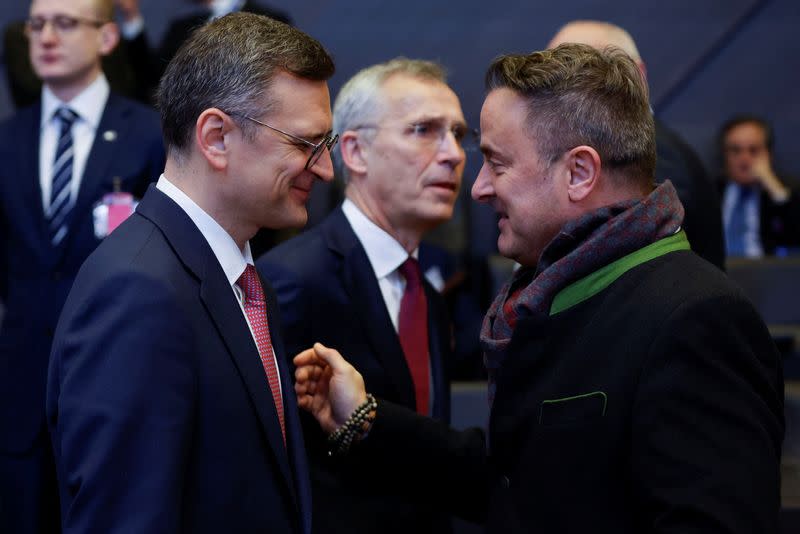Hard to sway Hungary to back EU aid for Ukraine next week -Luxembourg

By Gabriela Baczynska and Andrew Gray
BRUSSELS (Reuters) - It will be hard to get Hungary to back more financial aid to Ukraine at a European Union summit next week, with the bloc having set a bad precedent to finesse Viktor Orban's objections the last time around, Luxembourg's foreign minister said.
Xavier Bettel, who was previously Luxembourg's prime minister and represented it at EU summits for a decade until last November, said Ukraine needed both military and financial assistance as it fights Russia's almost two-year-old invasion.
"One is needed as much as the other," he told Reuters in an interview in English on Tuesday. "Military help, it's (so) they are still able to have successes and not be destroyed from one day to another."
Bettel stressed it was in the EU's own interest to help the Ukrainian economy since the 27-member bloc decided its eastern neighbour will join one day as a member state, a lengthy process that gets more complicated the bigger the development gap.
At the last EU summit in December, Hungarian Prime Minister Orban left the room to let the other 26 leaders decide to launch membership talks with Kyiv, something his nationalist and pro-Moscow government strongly opposed but did not formally block.
Notorious for many bitter feuds with the EU during his 13 years in power, Orban has become a vocal critic of the bloc's support for Ukraine and boasted about his ties with the Kremlin since Russia went to war in Ukraine in February 2022.
During the December summit, Orban vetoed giving Ukraine 50 billion euros ($54 bln) in financial assistance through 2027.
EU leaders will reconvene in Brussels next week to again seek an agreement on Ukraine aid. A top government official in Hungary said last week they were nowhere near a deal.
Bettel said a bad impression had been created when, just ahead of the December summit when Orban's support would be needed on Ukraine, the EU unlocked 10 billion euros for Hungary hitherto frozen over widespread accusations that Orban was damaging democracy at home.
"We had a difficult agreement last time. Viktor Orban went to the loo," Bettel said, though others said Orban had left the room for a coffee break. "We cannot give the impression that to have a common position means to pay (Budapest)... This is not a good precedent.
"It's difficult. I know Viktor Orban well... it won't be easy to convince him. But now we know that if we don't support Ukraine, then who's next" to face a Russian invasion, Bettel said, adding he hoped a deal would emerge next week.
Ukraine relies heavily on Western aid as it fights Russia. The EU contribution becomes even more important for Kyiv amid a stalemate on the battlefield - front lines in Ukraine's east and south have scarcely budged for many months - and doubts swirling over the future of U.S. support for Kyiv.
Beyond military aid to Ukraine, Bettel said the EU needed to step up its military capabilities to guarantee its own security should Donald Trump return to the U.S. presidency.
He said he was "very cautious" about prospects for seizing Russian assets frozen under sanctions without judicial approval, despite a new push by Washington at the Group of Seven leading industrialised economies.
EU countries are poised to agree on a substantially weaker proposal to set aside profits made on such assets for the eventual benefit of Ukraine. ($1 = 0.9203 euros)
(Writing by Gabriela Baczynska; editing by Mark Heinrich)

 Yahoo News
Yahoo News 
